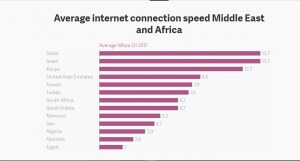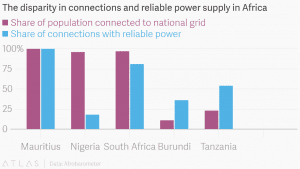President Paul Kagame of Rwanda recently rekindled the African quest for digital transformation at the Transform Africa Summit held in Kigali. President Kagame and President Uhuru Kenyatta of Kenya called on other African leaders to speedily invest in technology across the continent. This, according to the leaders, will lead Africa to the world they want and ensure faster and efficient services. Their remarks reiterated the call made at Addis Ababa last February on the need for digital transformation in Africa. But, can Africa redefine African space through digital transformation by 2063 without solving other problems bewildering the continent like inadequate infrastructure, poor power supply and so on.
In February 2019, African leaders gathered at Addis Ababa, the capital of Ethiopia, to discuss the prospect of digitizing African countries by 2063. The decision was informed by the necessity for Africa to compete with the rest of the world. There is doubt about this agenda 2063 and the big question of Africa’s preparedness is on the table. From all indications, though, it seems many African countries are far from starting the digital transformation journey; There are numerous serious challenges to digital transformation in Africa to start with.

Many necessary modern facilities are inadequate, the freedom to use the internet is not even guaranteed in some countries. Despite these problems, providing efficient power and internet services is becoming more herculean by the day. Coupled with these are the problems of insecurity, endemic corruption, civil wars, and poverty. All these issues are factors that can mitigate the digital transformation agenda of 2063 in Africa.
Watering the Ground for Digital Transformation
The infrastructure in most African countries indicates the continent is far from beginning its digital transformation journey. Countries do not have a requirement for digital transformation which ordinarily should include proper digital training and education facilities. The curricula in most institutions of learning across the continent do not address the demands of modern technology especially artificial intelligence and robotics. Besides South Africa which has 24 robotics labs—the highest in Africa, there is no evidence pointing to serious ongoing research efforts in both fields. More so, internet freedom is essential in achieving digital transformation in the continent.
President Kenyatta emphasized that technology must not be used to propagate social vices but as a problem-solving tool. He is right. The creative transformation of the continent lies in the level of freedom that people enjoy in using technology, especially the internet. Over 22 countries have disrupted internet connectivity within the last five years in Africa, pointing to another unseriousness towards digitization. Seventy-seven percent of leaders ordering this backward policy are dictators. Whereas, such policy will not only delay Africa in achieving the digital transformation, but it is also an infringement on the rights of the people.
We should get Serious about the Serious Problems
Energy is a problem that must be resolved before digital transformation could be achieved. But this will be hardly fixed so long most electricity grids are controlled by the government. It is why African countries have been ranked low in successive editions of the Spectator Energy Index. If we fix the energy problem, then we can move forward to the next thing on the checklist. If not, we are going nowhere. 

The internet is a massive source of information people can use to improve their lives. However, most African countries still fall short of 20mbps. The country with the best internet service on the continent is Tunisia and it ranks 71st in the world. Appalling, right?
But moving away from energy, other items on the checklist including ending civil unrests, managing terrorism and xenophobia are serious undertakings, too. We need these fixed if we are serious about 2063.
Word of mouth will not digitize Africa, walking the talk will.
Oluwasegun Ajetunmobi is a Writing Fellow at African Liberty and graduate student of Diaspora and Transnational Studies at the University of Ibadan, Nigeria. He is an Agora Fellow with Young Voices and an Alumnus of the Young African Leaders Initiative, Regional Leadership Centre (Accra).

